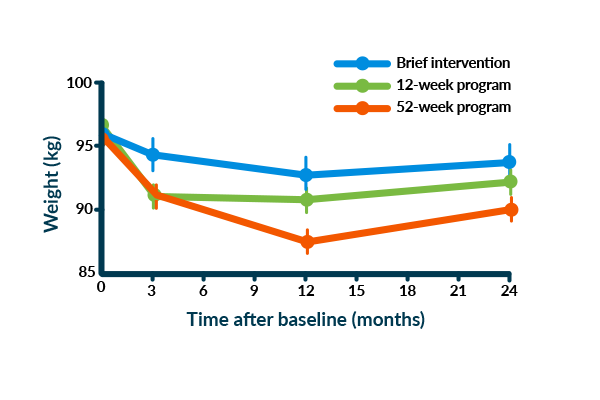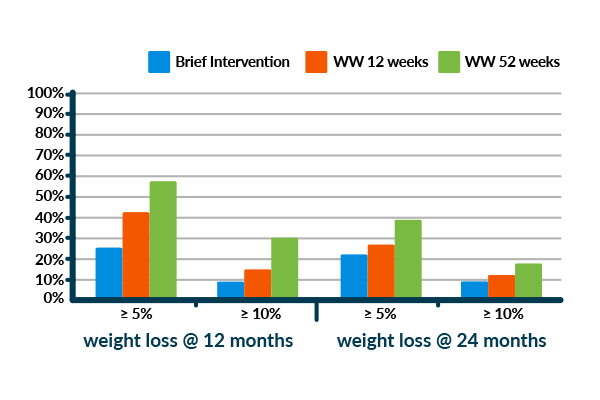

A randomized controlled trial followed 1,267 English adults (68% female, 53.2 y, BMI 34.5 kg/m2) for 24 months while they participated in Weight Watchers (WW; meetings and digital tools) for 12 weeks, WW (meetings and digital tools) for 52 weeks, or a brief intervention. The 2017 study published in The Lancet found that at 3 months, 12 months, and 24 months, those in the combined WW groups lost significantly more weight than those who received a brief intervention.
Further, at 12 and 24 months, those who received access to Weight Watchers for 52 weeks lost significantly more weight than those who received access for 12 weeks. Those in both the 12- and 52-week WW program also had greater blood sugar control and greater reductions in body fat than those in the brief intervention program. Additionally, the incremental cost effectiveness ratio for the 52-week WW program was cost effective compared to the brief intervention and 12-week WW program.


Source: Ahern AL, et al. Extended and standard duration weight-loss programme referrals for adults in primary care (WRAP): a randomised controlled trial. Lancet 2017; 389(10085), 2214-2225.
